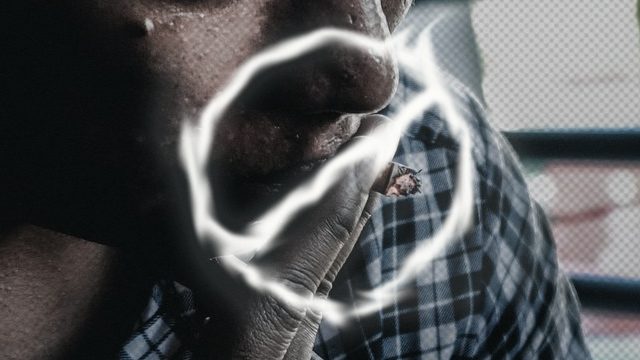SUMMARY
This is AI generated summarization, which may have errors. For context, always refer to the full article.

MANILA, Philippines – The Office of the Ombudsman will now police smokers within its vicinity as it strictly implements its smoking ban policy.
In Office Circular 12 signed last April 13, Ombudsman Conchita Carpio Morales required strict compliance of the ban, which covers all forms of tobacco products, including cigarettes, cigars, e-cigarettes and similar devices.
The ban covers not only the Ombudsman’s office buildings, but even other structures it has rented, as well as rooms, the compound and its grounds, parking areas, garden, rooftop, and vehicles in the vicinity.
A directive which prohibits smoking within office premises has actually been in place since 2010, but it was treated casually for years.
“To ensure the success of the anti-smoking policy of the Office of the Ombudsman, smokers and non-smokers alike should be educated on the negative effects of smoking necessitating a need for the implementation of a smoking cessation program,” the Ombudsman said.
The government agency will designate smoking areas, but smokers there will see graphic and textual health warnings that caution against the harms of smoking. (READ: INFOGRAPHIC: Imagining a world with no tobacco)
Signs with words such as “This is a Smoke-Free Zone” and “No Smoking” will also be prominently posted in the entrance gates and other conspicuous areas. These signs will warn violators about fines of up to P10,000, based on the Tobacco Regulation Act of 2003 and the Philippine Clean Air Act of 1999.
Aggravating factors include attempts of the offender to use his or her official position for undue advantage, the number of times he or she is caught violating the ban, and discarding cigarette butts improperly.
Building administrators and area supervisors will conduct regular inspections within the government agency to check on compliance of officials, employees, and visitors alike.
As early as 1999, the Philippines already has Republic Act 8749 or the Clean Air Act. Republic Act 9211 or the Tobacco Regulation Act of 2003, meanwhile, mandates the establishment of smoking and non-smoking areas in places not covered by the law’s smoking ban.
Other tobacco-related health measures enacted in recent years include the historic sin tax law, which increased excise taxes on tobacco products, and the graphic health warning law, which requires tobacco products manufactured or imported for sale in the Philippines to carry graphic health warnings on the lower portion of a cigarette pack, in at least 50% of both sides of the pack.
Tobacco kills nearly 6 million people each year, with more than 5 million as a result of direct tobacco use. In the Philippines, 240 Filipinos die every day because of major tobacco-related diseases.
The Philippines is a signatory to the World Health Organization’s Framework Convention on Tobacco Control. – Jee Y. Geronimo/Rappler.com
Add a comment
How does this make you feel?
There are no comments yet. Add your comment to start the conversation.